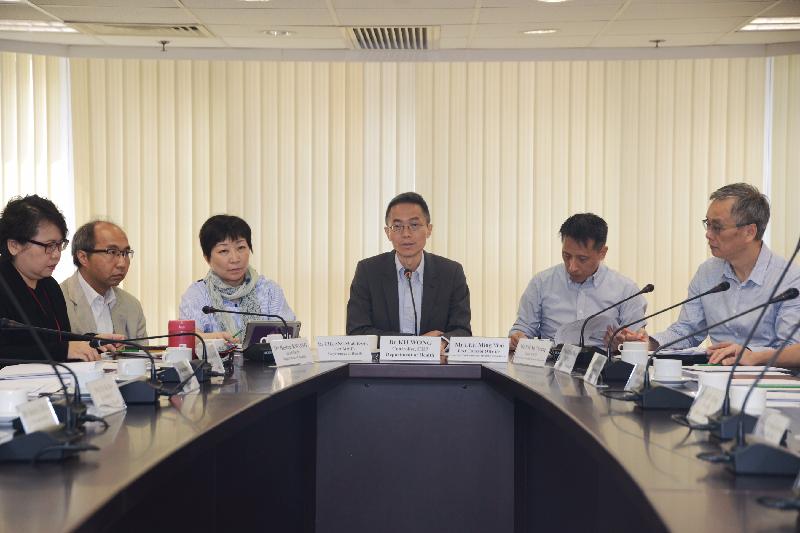Mosquito control actions co-ordinated in rural areas and municipal venues (with photo)
**************************************************************************************
Chairing the meeting, the Controller of the Centre for Health Protection of the Department of Health, Dr Wong Ka-hing, said, "We are concerned about the two JE cases recorded in June. As the vector and hosts of JE are different from those of other mosquito-borne diseases, bureaux/departments and organisations are reminded to look out for facilities with animal hosts (pigs or wild birds) and reinforce mosquito control to tailor the prevention of JE in Hong Kong."
The JE vector Culex tritaeniorhynchus breeds in large water bodies such as rice paddies and is infected after feeding on infected pigs or wild birds. It is most active from dusk till dawn and it transmits the virus to humans by biting. As JE mainly occurs in rural and agricultural areas, mosquito control around pig farms and stopovers where migratory birds congregate such as ponds or riverbanks will be strengthened. The Hong Kong Wetland Park and the Mai Po Nature Reserve have also been reminded to remove stagnant water and eliminate mosquito breeding sites.
"General mosquito control and measures to prevent mosquito proliferation are also essential in guarding against dengue fever (DF). Works sites and fenced areas with overgrown vegetation as well as landfills under restoration may be favourable for mosquitos to breed if stagnant water accumulates. Public facilities, municipal venues, schools, residential care homes and hospitals should step up mosquito control to better protect the public, users and residents," Dr Wong added.
From July 6 to 12, one new DF case was confirmed and the patient had been to Vietnam in the incubation period. As of yesterday (July 12), the 54 cases in 2017 were mainly imported from Thailand (17), followed by Sri Lanka (nine), Indonesia and the Philippines (six each), with no local cases so far.
Dengue remains endemic in some areas in Asia and overseas. In 2017, 20 697 cases were recorded in Thailand, 1 529 in Singapore and 89 in Japan (since January 2).
To prevent mosquito-borne diseases, the public should take the following measures to prevent mosquito bites:
1. Wear loose, light-coloured, long-sleeved tops and trousers, and use DEET-containing insect repellent on exposed parts of the body and clothing;
2. Take additional preventive measures in outdoor activities:
- Avoid using fragrant cosmetics or skin care products;
- Re-apply insect repellents according to instructions;
3. Special notes during travel:
- If going to affected areas, arrange consultation with a doctor at least six weeks before travel, and have extra preventive measures to avoid mosquito bites;
- During travel in endemic rural areas, carry a portable bed net and apply permethrin (an insecticide) on it. Permethrin should not be applied to skin. Seek medical attention promptly if feeling unwell; and
- Travellers feeling unwell, such as having a fever, should seek medical advice promptly, and provide travel details to a doctor.
Moreover, vaccination against JE is recommended for travellers who plan to stay one month or longer in endemic areas, particularly in rural areas, and for short-term (less than one month) travellers if they plan to have significant extensive outdoor or night-time exposure in rural areas during the transmission season of the disease.
The public may visit the CHP's JE page, tips for using insect repellents, Facebook Page, YouTube Channel, Travel Health Service and the Guidebook on Control and Prevention of Mosquito Breeding of the Food and Environmental Hygiene Department for more information.
Ends/Thursday, July 13, 2017
Issued at HKT 15:32
Issued at HKT 15:32
NNNN





